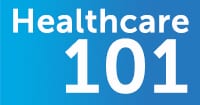Healthcare 101: Is an HSA or an FSA Right for You?
July 15, 2014

Has your employer recently switched to a high-deductible healthcare plan or reduced the level of coverage? If so, you may want to take advantage of one of the healthcare savings accounts available to help prepare your finances and offset any costs for injuries and illnesses that might come your way.
Flexible spending accounts (FSAs) and health savings accounts (HSAs) are types of health plans in which employers allow employees to send a portion of their paychecks to a savings account. These funds can then be used specifically for medical care costs.
Unlike health insurance, these plans allow you to set aside a pool of cash that will be ready if and when you face a health issue. The money is yours, and in most cases you don’t have to wait for an insurance company to approve the costs or reimburse you. Here are some things to consider when determining if an FSA or HSA is right for you.
Advantages of Both:
Tax benefits
The money you set aside for healthcare costs in either an FSA or HSA is pretax, so you don’t have to pay any payroll taxes on that portion of your income — which makes your dollars for healthcare go further.
Reduced paperwork headaches
Using your money for approved medical expenses is easy. Many plans provide you with a debit card that draws the money directly from your FSA or HSA. While you can use your funds for a wide variety of medical services, you should always keep records and receipts for your expenses, as you may need to provide these at some point for proof.
Now let’s take a look at the differences between FSAs and HSAs.
Flexible Spending Account
Advantages
- Instant access: You can use the full amount of your annual election when a medical need arises, even before you’ve contributed the full amount to your FSA.
- Wide range of services: You can use funds for some medical services not normally covered under health insurance plans, such as Lasik eye surgery.
- Availability of funds: You can use an FSA even if you don’t have health insurance, or if your health insurance is not considered a high-deductible plan.
Possible drawbacks
- Use it or lose it: In many cases, money left in the account at the end of the plan year is forfeited, so if you don’t budget wisely or forget about it, your money is gone for good. Some exceptions apply, so be sure to confirm with your employer if your plan has any sort of grace period.
- You don’t own it: FSAs are set up and owned by your employer. You may lose your money if you leave your job.
- Limited management: Changes to your election amount outside of an open enrollment period can only be made when certain qualifying events occur, such as getting married or the birth of your child.
Health Savings Account:
Advantages
- It’s all yours and it stays all yours: Even if you leave your job, you own the money in your HSA. And if you don’t use all of your funds in the year, the money rolls over.
- Easy account management: No need to wait for an open enrollment period. You can make changes to your deductions on a monthly basis.
- Invest the funds: An HSA works like an individual retirement account (IRA) in that the funds can be invested. You can also earn interest on the funds in your HSA.
Possible drawbacks
- Limited access: You can only use the funds that you have actually deposited into the HSA, regardless of what your annual election is. This can be an issue if a more expensive medical need arises early in the year.
- Tax reporting: You are responsible for reporting your qualified medical expenses to the IRS at tax time.
- Limits to who qualifies: In order to set up and use an HSA, you must have a high-deductible health insurance plan.
Armed with this information, we hope you can make an informed decision about whether one of these options might be a good fit for you!
